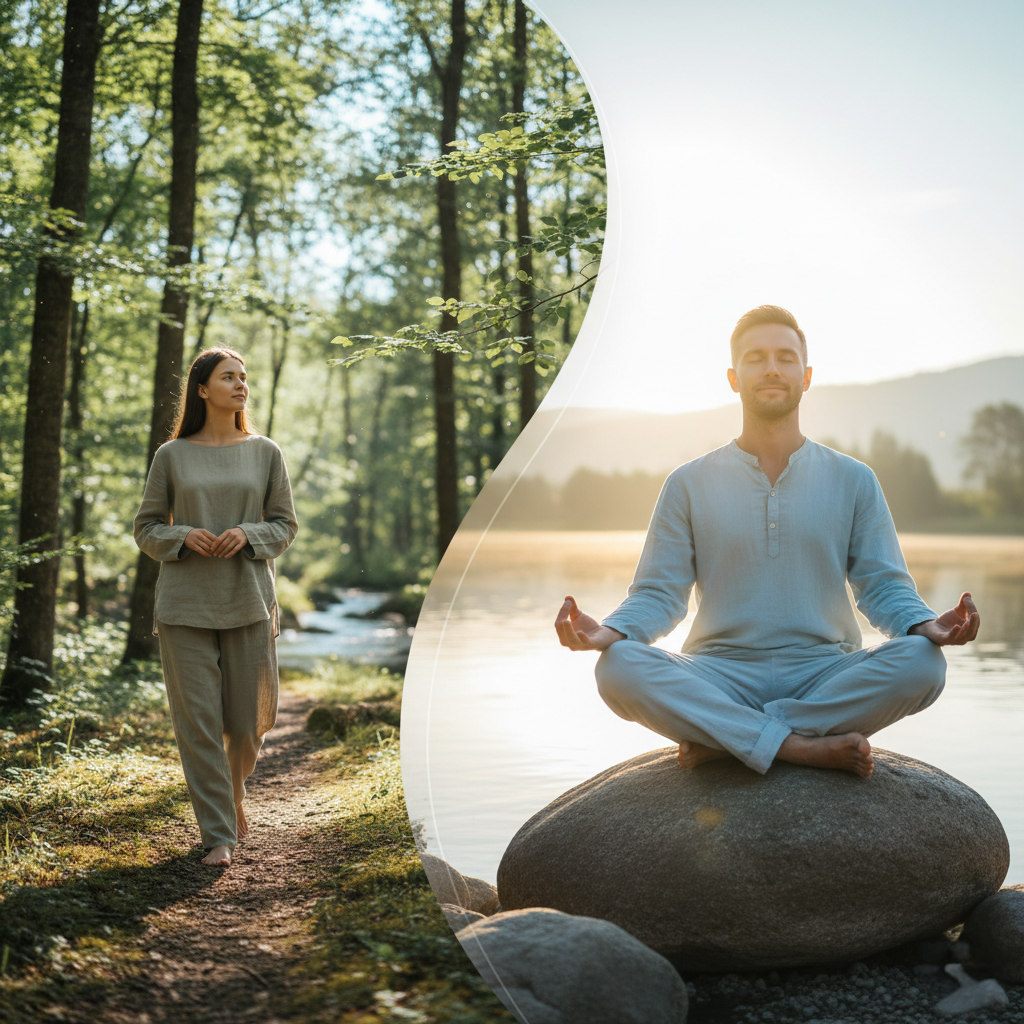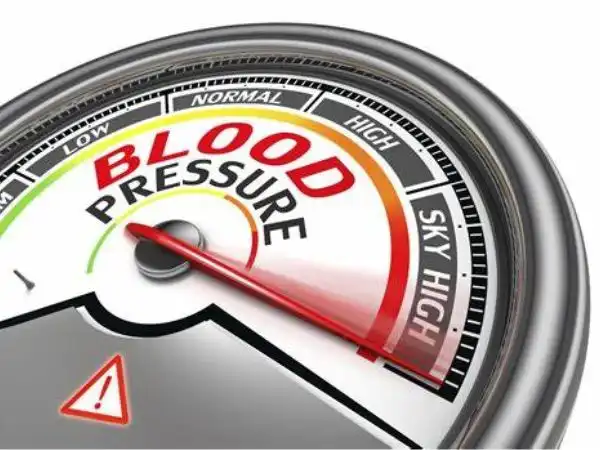We live in times where everyone is going after something. Everyone is fighting their own battles and is always in the race to win. Nobody knows, but they are trying so hard to live in such times where achieving something and staying relevant is super necessary. When it comes to stress, it has become a regular part of our lives, especially in recent years. Let’s count where we all feel stress
- Before exams
- During office work
- In the traffic
- Handling daily life problems
- Financial burdens
This all is still okay as they are a part of our life, but the problem occurs when it stay for too long and affects our body and mind. Then what we face, we face
- Tiredness
- Headaches
- Anxiety
- Heart problems
In short, life seems harsh. Now comes the part of what we can do. Is it manageable to reverse stressing out and live an everyday, stress-free life? Well, stress will never go away; that’s a question. We can opt for solutions that help us live a stress-free life every day.

According to the National Mental Health Survey (NMHS) 2015‑16 (commissioned by the Ministry of Health and Family Welfare, Government of India), the “current prevalence” of any mental morbidity among adults (18+) in the sampled states was 10.6%. ruralindiaonline.org+4mohfw.gov.in+4People’s Archive of Rural India+4.
The same survey estimated that the “lifetime prevalence” (i.e., people who have ever experienced a diagnosable mental disorder) was 13.7%. pubmed.ncbi.nlm.nih.gov+2m.moam.info+2
What Is Mindfulness?
Mindfulness is basically the practical of being fully present in the moment. It involves paying attention to what is happening right now in the moment rather than focusing on the past and worrying about the future.
For example, when you eat, you need to take notice of the taste, smell, and texture of your food. When you walk, you feel the need to touch the ground and the air around you. When you talk to someone, listen very carefully instead of thinking about what you will say next.
Like, it is a kind of thing where you put your 100% on the present and not discovering or not talking about the past or future, like what you will do and what you will not do. So, this is just a simple act of awareness that allows you to stay in the present and enjoy small moments and reduce stress.
Now, when you practice mindfulness, your mind becomes very calmer, and you are less likely to react impulsively to minor issues. Research shows that practicing mindfulness can lower blood pressure and reduce stress hormones like cortisol.
Now, in one of the studies, people who practiced mindfulness for 12 weeks had lower blood pressure and felt much less stressed. Mindfulness also affects the amygdala, a part of the brain that controls our fear and stress.
Now, regular practice makes this area less active, helping you stay calm in tough situations. Over time, mindfulness improves focus, boosts positivity, and helps you manage emotions better.
What Is Meditation?
Now comes meditation. If we talk about meditation, what is it? It is a focused mental exercise. It is when you sit very quietly, you close your eyes, and you pay attention to your breathing or a simple thought, and nothing is going on in your mind, and you also focus. And the goal of meditation is to give your mind a break from the constant thinking you are doing.
Now, when you meditate, your breathing also slows down, your muscles also relax and your brain feels very light and peaceful. This is the goal of meditation at the end of the day. But there are many types of meditation, like mindfulness meditation, which is like focusing on your present, like focusing on your breath, and staying in the present moment. Now, breathing meditation is also there, in which you can count, you can count your breath very slowly and calm to mind.
Guided meditation. Now listening to a voice or app that helps you relax. Scientists have also found that regular meditation can reduce anxiety and make the brain more balanced. It helps calm the amygdala, the part of the brain that triggers fear and stress, which we talked about in the mindfulness section. Now, over time, your brain learns to remain peaceful even when faced with stressful situations.
Now, this is the beauty of meditation. One study also shows that people who meditated for just eight weeks had 20% less brain activity in their stress centers and felt very calm. Meditation also improves sleep, focus, and emotional control.
How Are Mindfulness and Meditation Different?
Now the focus of this blog is to understand mindfulness and meditation. Basically, we are focusing on mindfulness vs meditation, which is better? As we understood above, what mindfulness is and what meditation is, and what both give to the human body. Now, what happens? Mindfulness and meditation are quite similar, but they are not the same. We need to understand this difference only.
Now, mindfulness means staying in the present, like understanding or being in the presence, like staying aware in your daily life when you’re eating, when you’re walking, or when you’re talking. On the other hand, meditation means sitting quietly in a calm place, focusing for a few minutes. This is what meditation is all about.
If we talk about mindfulness, it can be done anywhere, anytime. You know, you just need to be present. You don’t need a special place or time for it. But for meditation, you need a very quiet space because you need to focus on one thing, and also you need some time to focus. So, this is the one difference we can see that mindfulness can be done anywhere, whereas meditation requires a place and time.
Now, to simplify it, you can think of it like this. Mindfulness is like walking every day to stay fit, okay? But meditation is like going to the gym for deeper training. Both help you reduce stress and make you feel peaceful.
But mindfulness keeps you calm throughout the day, and meditation gives you deep relaxation. So, when talking about mindfulness versus meditation, we understood that both are quite similar but not similar at the bigger end.
What Science Says About It?
Let’s take a look at science in it. What science actually says about mindfulness versus meditation? So, science strongly supports both mindfulness and meditation. Both of the things are correct in terms of science, but studies show that people who practice these regularly for 30 to 40% less stress they are.
Both practices help reduce cortisol. Cortisol is, as we talked about in our other blogs, that it is the main stress hormone, and it also improves the immune system, like while doing both exercises. Now, they also lower the blood pressure and heart rate, which are signs of a healthy body.
Now, what happens? A brain scan shows that after regular meditation, the connection between the prefrontal cortex and the amygdala becomes stronger. Now, this means that you can control your emotions better and react less to stressful situations if you are practicing mindfulness and meditation.
So, in the end, what we can say is that mindfulness and meditation don’t just make you feel good; they actually change your brain and make you stronger from the inside.
How to Practice Mindfulness and Meditation?
Now, in this blog on mindfulness versus meditation, we need to understand what to do when and how we can do it. So starting with mindfulness, you don’t need a lot of time or special tools for either of them. You can just begin whenever you want to, and you barely require five minutes for it.
Now starting with mindfulness, you need to try to notice what you are doing when you eat, walk, or wash dishes, even. You need to pay full attention to that activity. This means that you have to be present at that activity, and you will enjoy it without stressing about the past or the future. What you have to do, if you feel stressed, is take a few deep breaths.
You try to listen carefully when someone says. You don’t have to think about what you will answer, just listen to what they are saying. Don’t judge it, don’t plan your answer. Now, for meditation, sit in a quiet place. Now close your eyes and take slow and take slow deep breaths. Focus on your breathing, feel the air going in and out.
Which Is Better for Stress?
Both work well — it depends on your lifestyle.
If you have a busy schedule and want something quick, start with mindfulness. You can do it anytime — while traveling, eating, or working.
If you prefer a quiet and focused time, try meditation. It helps you go deeper into relaxation.
Many people find that combining both works best — mindfulness during the day and meditation once a day, maybe in the morning or before bed. Together, they help you stay calm all day and sleep better at night.
Final Thoughts: A Calmer, Healthier Life
Mindfulness and meditation are simple but powerful ways to handle stress. You don’t need to change your whole life — just start small.
Mindfulness helps you stay present and stop overthinking. Meditation gives your mind a break and builds emotional strength. Together, they help you live more peacefully and handle problems with a clear mind.
Try to make these practices a daily habit. Take a few deep breaths when you wake up, or sit quietly for 5 minutes before sleeping.
Remember — peace doesn’t mean having no problems. It means being calm even when life isn’t perfect.
With regular practice, mindfulness and meditation can help you live a happier, healthier, and more balanced life — one peaceful moment at a time.
That’s why learning how to manage stress is very important. Two of the best and most natural ways to handle stress are mindfulness and meditation. These two practices help calm the mind, relax the body, and make us feel peaceful from inside.


